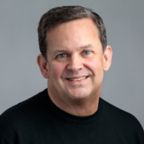National Survey: The People’s Agenda—America’s Priorities and Outlook for 2014
• The public wants the government to address a diverse set of policy issues that range from economic problems to social policies to foreign affairs.
• Health care reform tops the list, followed by unemployment.
• Broadly based skepticism that government will make progress on key issues
• Americans envision significant personal challenges but confidence in ability to address them.
• Technology seen as the biggest change in American life, paired with concern that the quality of American life faces long term decline.
Chicago, January 2, 2014—The Associated Press—NORC Center for Public Affairs Research has released the results of a major new survey that reveals the American people’s list of issues they believe should be the focus of government attention in 2014. The same survey also explores the complex blend of personal, political, and ideological factors that lie behind such a list.
The data reveal broad doubts that the government will make progress in addressing the public’s policy priorities, and feelings about the role of institutions other than government to solve major problems.
“While it is very easy to ask people to choose a single ‘most important problem’ and to build a list for the answers, the reality is that government has to address many issues at the same time,” said Trevor Tompson, director of the AP-NORC Center. “This survey, with data about the public’s priorities on a range of policy issues, provides policy makers with rigorous data as they seek to understand the public’s outlook on where the country is now and what the action agenda should be for the year ahead.”
Key findings of the Survey Include:
• The public’s preferred agenda for the government in 2014 includes a diverse set of policy issues that range from economic problems to social policies to foreign affairs.
• Health care reform tops the public’s list of priorities, mentioned by 52 percent of respondents as one of the top ten problems, followed by unemployment (42 percent), the economy in general (39 percent), and the federal deficit (31 percent).
• Few have faith in the current political system, with the government receiving low marks on its performance in upholding the nation’s fundamental principles. For example, 55 percent believe the government is doing a poor job of representing the views of most Americans while only 9 percent say it is doing a good job.
• Americans are more pessimistic than optimistic on matters such as the nation’s ability to produce strong leaders, America’s role as a global leader, and the opportunity to achieve the American dream.
• Compared with the early 1970s, 20 percent of Americans feel technology is the biggest change in American life, with specific changes including the Internet, computers, and communications. By contrast, fewer than ten percent cite politics as the biggest change and five percent moral, religious, or social change.
• A majority of Americans believe that American institutions such as churches, small and medium-sized businesses, and charitable organizations are doing “the right amount,” when it comes to fixing problems the government cannot while similar numbers believe big business, labor unions, and wealthy individuals are not.
About the Survey
This nationally representative survey was conducted by The Associated Press-NORC Center for Public Affairs Research between December 12 and 16, 2013, with 1,141 adults 18 and over from the 50 states and the District of Columbia. The overall margin of error is +/- 3.7 percentage points at the 95 percent confidence level.
Additional information, including the survey report, Associated Press stories based on the survey results and the survey’s complete topline findings can be found on the AP-NORC Center’s website at www.apnorc.org.
NORC at the University of Chicago is an independent research organization headquartered in downtown Chicago with additional offices in the University of Chicago campus, the D.C. Metro area, Atlanta, Boston, and San Francisco. NORC also supports a nationwide field staff as well as international research operations. With clients throughout the world, NORC collaborates with government agencies, foundations, education institutions, nonprofit organizations, and businesses to provide data and analysis that support informed decision making in key areas including health, education, crime, justice, energy, security and the environment. NORC’s more than 70 years of leadership and experience in data collection, analysis, and dissemination—coupled with deep subject matter expertise—provides the foundation for effective solutions to issues confronting society.
The Associated Press (AP) is the essential global news network, delivering fast, unbiased news from every corner of the world to all media platforms and formats. On any given day, more than half the world’s population sees news from the AP. Founded in 1846, the AP today is one of the largest and most trusted sources of independent newsgathering. The AP considers itself to be the backbone of the world’s information system, serving thousands of daily newspaper, radio, television, and online customers with coverage in text, photos, graphics, audio and video.
About NORC at the University of Chicago
NORC at the University of Chicago conducts research and analysis that decision-makers trust. As a nonpartisan research organization and a pioneer in measuring and understanding the world, we have studied almost every aspect of the human experience and every major news event for more than eight decades. Today, we partner with government, corporate, and nonprofit clients around the world to provide the objectivity and expertise necessary to inform the critical decisions facing society.
Contact: For more information, please contact Eric Young at NORC at young-eric@norc.org or (703) 217-6814 (cell).





